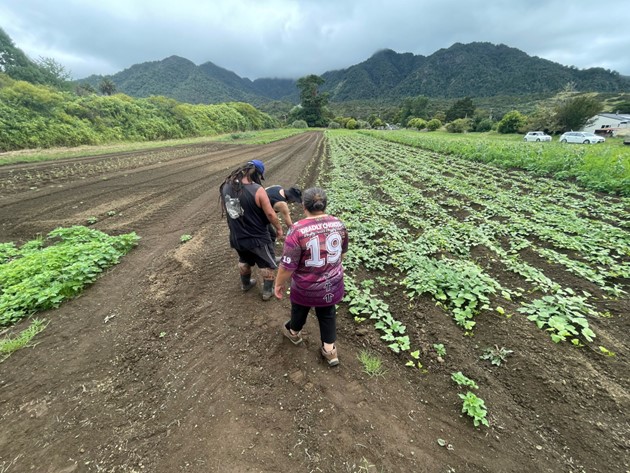Giving voice to the humble kūmara

Kāore te kumara e kōrero ana mō tōna ake reka. The kūmara does not talk about its own sweetness. Professor Paul Tapsell of Takarangi Research Ltd is well acquainted with this whakataukī. He together with Professor Merata Kawharu are embarking on a journey to explore our nation’s stories about the mighty staple crop that cannot be done through Western, archaeological lenses. We can then uncover narratives about the settlement, histories, and kōrero of Aotearoa and reconsider the value of kūmara culturally and economically for our present and future
Published on 3 Whiringa-ā-rangi November 2022
There is significant potential to unlock and rediscover hidden narratives from Māori oral historical perspectives, using kūmara as central vines linking them together. Academic and popular writing on kūmara is replete with western science-heavy archaeological research emphasising the value of kūmara to early settlements. While this is critical to understanding the first inhabitants of Aotearoa, where are descendant-maintained histories of kūmara in academic and publicly-accepted discourses? Without mātauranga – Māori framed knowledge systems including cross-generational understandings on the topic – DNA sampling and archaeological explanations for the arrival of kūmara remain incomplete and highly controversial at best, often reminiscent of the popularised twentieth century belief that Polynesians were accidental drift voyaging settlers.

Professor Paul Tapsell, Takarangi Research Ltd. Courtesy NZIA
While archaeologists continue to debate origins of pre-European kūmara in the Pacific through journals, orally maintained narratives supported by genealogies, navigational signposts, and varietal dispersal, have been carefully transmitted by kūmara knowledge holders up to recent times. Professor Tapsell, along with Associate Investigator Professor Merata Kawharu, has been awarded a Marsden Fund Standard grant to conduct research directly guided and supported by tohunga expert community-knowledge holders. With mātauranga at the heart of the investigation, the team will reassess current scientific understandings of kūmara through a whakapapa-focused lens of mātauranga accountability. This combination of knowledge will provide a way forward for hāpori communities, especially amongst those who maintain kūmara gardens today. It is they who draw on past learnings while simultaneously responding to major challenges including climate change and water degradation, so that they can strengthen the economic and cultural fabric of marae communities in particular.
We know kūmara are vital to local identity and to first settlement. It is time to re-discover the sweetness of its narratives, take a new look at our nation’s history and the cultural and economic innovation potential of the mighty kūmara.
